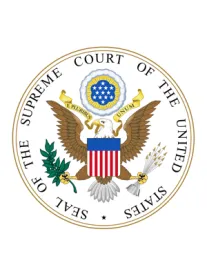While the U.S. Supreme Court’s decision in Liu v. SEC limited the SEC’s disgorgement power, it also left open certain complicated issues now subject to interpretation.1 As we previously summarized, in an 8-1 vote, the Court held that disgorgement is a permissible equitable remedy for securities fraud under § 78u(d)(5), provided the amount does not exceed a wrongdoer’s net profits and the money is returned to harmed investors.2
The Court focused on the broad question of whether disgorgement qualifies as equitable relief and chose not to decide three narrower issues raised by the petitioners as to why their nearly $27 million disgorgement order crossed the bounds of traditional equity practice, namely: it failed to return money to victims, did not deduct business expenses, and imposed joint-and-several liability. While the Court did not decide those issues, it provided principles to guide the lower courts on remand.3
Below, we explore the Court’s guidance and resultant ambiguity on two issues:
-
What qualifies as a “legitimate” business expense deductible from disgorgement?
-
When are defendants “partners in wrongdoing” for purposes of collective liability?
1. What are “Legitimate” Business Expenses?
Summary: According to the Supreme Court, legitimate business expenses that may be deducted from disgorgement include items that have value independent from fueling the fraudulent scheme, including lease payments, equipment, and payments to innocent third parties.
A review of precedent suggests that in addition to brokerage commissions already paid, necessary business expenses such as phone charges, underwriting costs, and other overhead expenses that a customer would have incurred regardless of whether the scheme was fraudulent, may also be deducted.
Legitimate Expenses under Liu
The Court instructed that “legitimate” expenses, including the cost and expense of conducting a business, must be deducted from disgorgement awards.4 Where, however, the entire profit results from the wrongdoing, courts are required to ascertain whether expenses are legitimate or merely “wholly fraudulent” gains operating under another name.5
The Court provided a few examples of what it considered to be legitimate business expenses. Applying the rule to the case at hand, the Court noted that some expenses from the petitioners’ scheme went towards lease payments and cancer-treatment equipment, and those items “arguably have value independent of fueling a fraudulent scheme.”6 While the Court left it to the Ninth Circuit to assess whether those expenses are legitimate and therefore deductible, the Court insinuated that they are.7 The decision also rejected and abrogated an Eighth Circuit case, SEC v. Brown, in which, according to the Court, the Eighth Circuit wrongfully failed to deduct legitimate expenses such as “payments to innocent third-party employees and vendors” from the disgorgement award.8, 9
Determining what expenses are “legitimate” and therefore deductible moving forward will entail conducting a facts and circumstances analysis. Liu v. SEC was a relatively straightforward fraud case, in which the petitioners sought and misappropriated funds from investors under the EB-5 immigrant visa program.10 The petitioners themselves received investor funds and applied some of those funds to the overhead costs referenced above.11 Thus, the Court appeared to hold that proceeds applied as represented or otherwise not misappropriated, i.e., the core fraud at issue in Liu, were legitimate business expenses. It remains to be seen how the SEC and courts will treat different disgorgement scenarios.
For instance, in certain fraudulent security scheme cases, the SEC seeks disgorgement from secondary actors who have received “ill-gotten gains” in the form of commissions and fees from the primary wrongdoer or issuer by recommending or selling the fraudulent investment.12 That scenario does not fit neatly into the Liu paradigm, where the petitioners directly received investor proceeds.
When a secondary actor receives commissions as part of, or in connection with, the broader fraud, those commissions are indirect investor proceeds and are the fruit of the fraud. Unlike in Liu, all of the commission proceeds are derived from the fraudulent scheme, and there is no expenditure by the representative or advisor on legitimate activities related to the underlying fraudulent scheme. What, then, are legitimate expenses? Are there legitimate business expenses, such as payroll, nonetheless incurred by the representative or advisor that should be deducted? A similar question applies in cases where the SEC seeks disgorgement for failure to disclose conflicts associated with revenue sharing practices.
Looking to Precedent
A review of precedent, including cases cited by the Liu petitioners throughout their litigation,13 provide a framework for evaluating how courts and the Staff may measure disgorgement in different fraud scenarios.
For example, in SEC v. Thomas James Associates, Inc., the SEC brought an action against a brokerage firm and its principals for market manipulation in IPOs, for which the court ordered the defendants to disgorge illegal profits from the manipulation, less expenses incurred in garnering such unjust enrichment.14 In arriving at the net figure, the court looked to the facts and circumstances of the fraud, which included the manipulation of four IPOs over three trading days for which the firm “garnered for itself several million dollars in excessive markups.”15
The SEC computed the firm’s illegal markup at $4.5 million, whereas the firm argued that the gross revenue less its covered short positions was closer to $2.3 million.16 The court rejected both calculations, stating that the SEC did not provide sufficient support for its calculation, and the defendants’ argument that it made less money due to the short selling was “simply not relevant to the determination of the profits it garnered from its manipulation.”17 Instead, the court calculated disgorgement by offsetting the firm’s gross profits from the IPOs with the “necessary business expenses” attributable thereto, including “commissions, telephone charges, underwriting expenses and a proportionate share of overhead.”18]/sup> Under this calculation, the court ultimately reduced the gross revenues from the four IPOs by 50% “to reflect a fair setoff for necessary business expenses.”19
A slew of cases also demonstrate that brokerage commissions incurred in executing trades are legitimate expenses. For example, in Litton Industries, Inc. v. Lehman Brothers, a tender stock offeror brought a private action against various illegal insider purchasers, claiming they artificially inflated the market price of certain stock, causing the plaintiff to pay more than it otherwise would have in its open market purchase and tender offer.20 As part of its relief, the plaintiff sought disgorgement of all the fees and commissions that certain defendants earned from the sale and purchase of the securities at issue.21 The court, however, denied the plaintiff’s request, explaining that while those defendants had received approximately $42,000 in fees and commissions, they had paid about $16,000 in commissions to third-party brokers.22 Because requiring disgorgement of fees and commissions “without permitting a reduction for associate expenses and costs constitutes a penalty assessment and goes beyond the restitutionary purpose of the disgorgement doctrine,” the court held that “transaction costs such as brokerage commissions incurred” in executing trades should be deducted.23
Similarly, in SEC v. Shah, the court offset an insider trader’s disgorgement by the amount he paid in brokerage commissions.24 While the court recognized that those commissions were “expenses incurred in perpetrating securities fraud,” requiring him to disgorge an amount equal to those commissions would “penalize him by compelling him to pay the commissions twice.”25
Further, as described above, the SEC has required disgorgement of commissions earned by representatives and advisors as a result of their recommending or selling fraudulent securities, even when those earnings are indirect investor proceeds. That was the case in In the Matter of Curtis A. Peterson, where the respondent, acting as an unregistered broker-dealer in the offer and sale of certain securities by two companies engaged in a fraudulent Ponzi scheme, earned approximately $584,550 in transaction-based compensation, which the SEC required him to disgorge.26 The respondent argued that the SEC should reduce his disgorgement by the amount he already paid in taxes on those commissions.27
While the SEC denied to deduct previously paid taxes based on certain precedent,28 it recognized that “the notion that paid taxes should never offset the amount disgorged is debatable,” and that there are “distinctions between using illicit gains to pay third parties by choice for general business and overhead expenses versus paying taxes owed by law on those same gains to the United States government—the very party that is seeking disgorgement via the Commission.”29 As the Supreme Court has now explicitly allowed the deduction of certain legitimate business expenses, a stronger argument perhaps can be made for the deduction of taxes paid on commissions earned.
2. When are Defendants “Partners in Wrongdoing” and Not Acting Jointly and Severally?
The Court also prohibited joint-and-several disgorgement liability except in cases where there was “concerted wrongdoing.”30 To allow otherwise would be at “odds with the common-law rule requiring individual liability for wrongful profits.”31 As one example of where joint-and-several disgorgement liability may no longer be permissible, the Court referenced a case in which a tipper was ordered to disgorge his tippee’s benefits in an insider trading context.32
The Court recognized that the common law historically allowed for “collective liability” for “partners engaged in concerted wrongdoing.”33 In support of this principle, the Court cited to a case in which individuals in a legal partnership concerted to commit patent fraud and were found collectively liable.34
As Justice Thomas noted in his dissent, unlike the individuals in that case, there is no evidence that the petitioners in Liu were legal partners.35 Rather, they were a married couple with commingled finances who were both actively involved in and enjoyed the fruits of their scheme.36 The Court remanded to the Ninth Circuit to decide, but suggested those facts were enough to find the petitioners liable as “partners in wrongdoing.”37
The Court explained that there is a “wide spectrum of relationships between participants and beneficiaries of unlawful schemes,” and chose not to “wade into all the circumstances where an equitable profits remedy might be punitive when applied to multiple defendants.”38 Without more, however, the level of “concerted wrongdoing” necessary to establish collective liability is open to interpretation.
[1] Liu v. SEC, No. 18-1501, 2020 WL 3405845 (June 22, 2020).
[2] Id. at *2.
[3] Id. at *9.
[4] Id. at *11.
[5] Id. at *11-12.
[6] Id. at *12.
[7] Id. at *2.
[8] Id. at *11 (citing SEC v. Brown, 658 F.3d 858, 861 (8th Cir. 2011), abrogated by Liu, No. 18-1501, 2020 WL 3405845).
[9] The Court also cited Restatement (Third) of Restitution and Unjust Enrichment § 51, Comment h for the general rule that “the defendant is entitled to a deduction for all marginal costs incurred in producing the revenues that are subject to disgorgement.” Additionally, the Court cited older patent infringement cases that stand for the general proposition that the costs of conducting business should be deducted from disgorged profits. Deductible expenses in these cases included the price of materials, interest, and manufacturing costs. See Providence Rubber Co. v. Goodyear, 76 U.S. 788 (1869); Root v. Lake Shore & M.S. Ry. Co., 105 U.S. 189 (1881).
[10] Liu, 2020 WL 3405845, at *4-5.
[11] Id.
[12] See, e.g., In the Matter of Curtis A. Peterson, Release No. 1124, 2017 WL 1397544 (Apr. 19, 2017) (respondent charged with acting as an unregistered broker-dealer in the offer and sale of securities was required to disgorge commissions earned).
[13] See SEC v. Liu, 2017 WL 1532359 (C.D. Cal.) Mem. of Points and Authorities in Opp’n to Pl.’s Suppl. Br. Regarding Penalties.
[14] SEC v. Thomas James Associates, Inc., 738 F. Supp. 88, 90-92, 95 (W.D.N.Y. 1990).
[15] Id. at 91.
[16] Id.
[17] Id. at 92.
[18] Id.
[19] Id.
[20] Litton Indus., Inc. v. Lehman Bros. Kuhn Loeb Inc., 734 F. Supp. 1071, 1072-73 (S.D.N.Y. 1990).
[21] Id. at 1076.
[22] Id.
[23] Id. at 1077.
[24] SEC v. Shah, 1993 WL 288285, at *5 (S.D.N.Y. July 28, 1993).
[25] Id.; see also SEC v. Rosenfeld, 2001 WL 118612, at *2 (S.D.N.Y. Jan. 9, 2001) (“A court may in its discretion, deduct from the defendant’s gross profits certain expenses incurred while garnering the illegal profits, including correspondence and related expenses and transaction costs such as brokerage commissions.”); and SEC v. McCaskey, 2002 WL 850001, at *4 (S.D.N.Y. Mar. 26, 2002) (recognizing that courts routinely “deduct from the disgorgement amount any direct transaction costs, such as brokerage commissions, that plainly reduce the wrongdoer’s actual profit”).
[26] In the Matter of Curtis A. Peterson, Release No. 1124, 2017 WL 1397544, at *4 (Apr. 19, 2017).
[27] Id. at *5.
[28] Id. (citing Larry C. Grossman, Securities Act Release No. 10227, 2016 WL 5571616, at *23 (Sept. 30, 2016) (holding that “it is well settled that disgorgement will not be reduced because the wrongdoer has paid an ordinary tax liability, and that [the respondent] must seek from the IRS, not us, any relief from the taxes he says he paid on the ill-gotten gains that we are now ordering disgorged”); SEC v. U.S. Pension Tr. Corp., 444 F. App’x 435, 437 (11th Cir. 2011) (refusing to deduct income tax from disgorgement amount)).
[29] In the Matter of Curtis A. Peterson, Release No. 1124, at *6.
[30] Liu, 2020 WL 3405845, at *10-11.
[31] Id. at *10.
[32] Id. (citing SEC v. Clark, 915 F.2d 439, 454 (9th Cir. 1990)).
[33] Id. at *11.
[34] Id. at *11 (citing Ambler v. Whipple, 87 U.S. 546, 559 (1874)).
[35] Id. at *15.
[36] Id. at *11.
[37] Id.
[38] Id.






 />i
/>i
